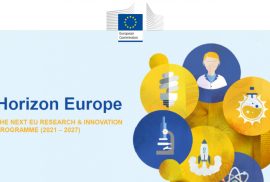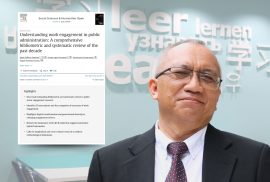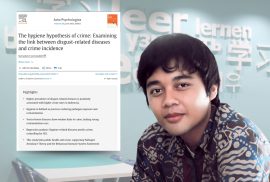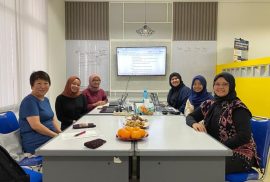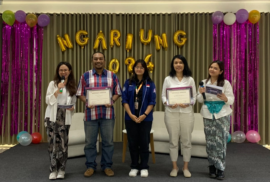The Faculty of Psychology, Universitas Gadjah Mada, through its Center for Public Mental Health (CPMH) team, has once again received international recognition with the successful awarding of funding for the proposal “Religion and Healing: Collaborative and Participatory Methodologies (RHEAL)” from the Horizon Europe Framework under the Marie Skłodowska-Curie Actions (MSCA) Staff Exchanges scheme. The RHEAL program focuses on developing cross-cultural and interdisciplinary approaches to healing in the field of mental health.
SDG 16: Peace Justice & Strong Institutions
Yogyakarta, April 24, 2025 — An article titled “Understanding Work Engagement in Public Administration: A Comprehensive Bibliometric and Systematic Review of the Past Decade”, authored by Iqbal Saffariz Santosa, Erwan Agus Purwanto, Sumaryono, and Puguh Prasetya Utomo, has been published in Social Sciences and Humanities Open, Volume 11 (2025), Article Number 101479. This journal is indexed in Scopus (Q1), with a 2023 SJR of 0.691 and an Impact Score of 4.2.
Yogyakarta, April 23, 2025 — An article titled “The Hygiene Hypothesis of Crime: Examining the Link Between Disgust-Related Diseases and Crime Incidence” by Samudera F. Jamaluddin has been published in Acta Psychologica, Volume 256, article number 105013. This journal is indexed in Scopus with a Best Quartile (Q1), an SJR score of 0.854 (2024), and an Impact Factor (IF) of 2.1.
The Center for Life-Span Development (CLSD) at the Faculty of Psychology, Universitas Gadjah Mada (UGM), welcomed Prof. Emiko Kashima from La Trobe University, Australia, from July 3 to July 10, 2024. Prof. Emiko Kashima’s visit is part of CLSD’s Visiting Professor Program to foster international research collaboration. The main objectives of this program are to establish partnerships and collaborative research with global partners, publish research manuscripts, and develop research proposals for submission to secure international funding in the coming years. The program was conducted at the Faculty of Psychology, Universitas Gadjah Mada, and led by Sutarimah Ampuni, S.Psi., M.Si., MPsych., Ph.D., Psikolog, as the Head of CLSD. The program also involved lead researchers Zahra Frida Intani, S.Psi., M.Psi., Psikolog, and Smita Dinakaramani, S.Psi., M.Psi., Psikolog, both lecturers at the Faculty of Psychology UGM, along with interns (student trainees) from CLSD.
The UGM Psychology Student Institute (LM) again held “Ngariung”, a discussion about social phenomena in society, on Saturday (25/5). This time Ngariung 2024 has the theme “Ableism Discourse: Is There Inclusivity for Quality Entertainment?”. This event presented Senoaji Julius, a director, producer and writer, and Elga Andriana, S.Psi, M.Ed, Ph.D., lecturer at the UGM Faculty of Psychology.

